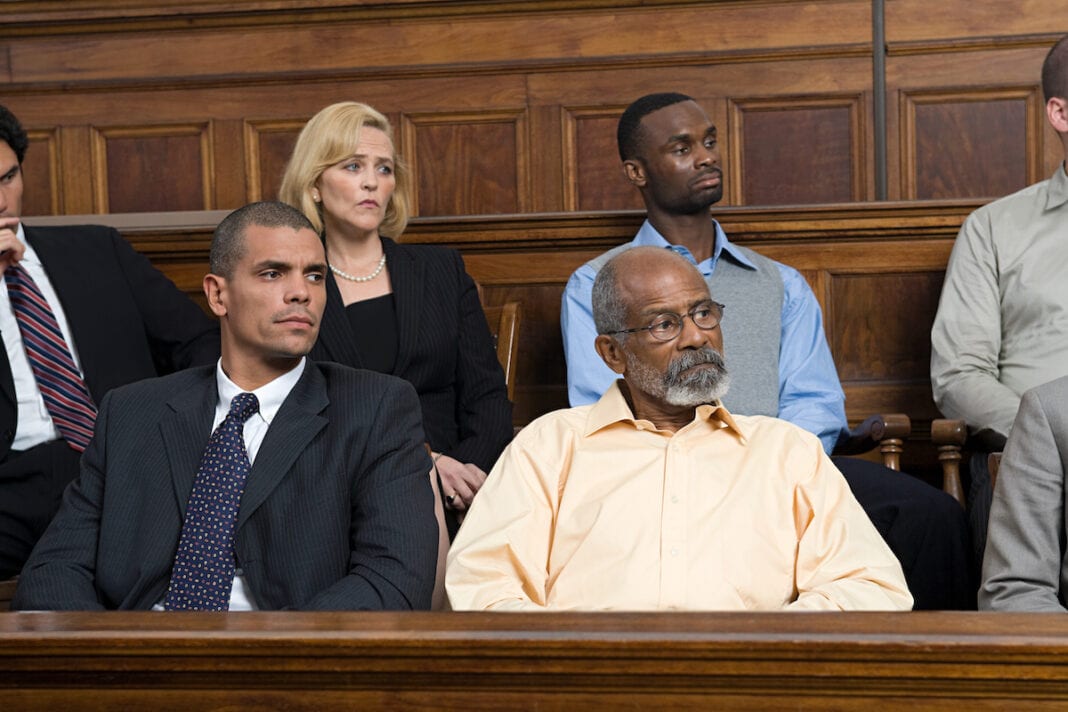Rob Dixon has been called for jury duty three times in his life and considers himself lucky that he’s never actually had to serve.
Dixon, 50, has a daughter who’s 17 now, but the last time he was called for jury duty in 2016, he would have had to arrange for child care. Couple that with pay that wouldn’t replace what he makes as a contract musician, and jury duty is a tough sell.
“I want to do my civic duty, but this is such an interruption,” he said as he walked to City Market across from the City-County Building.
Marion Superior Court resumed jury trials in March after a pause because of the COVID-19 pandemic. Trials are also now in-person. The combination of the pandemic and not enough incentives to respond appears to have had an impact.
Heather Welch, supervising judge for the court’s jury pool, estimated the return on jury summonses is about 20% now. That’s better than when jury trials first resumed but still lower than the typical pre-pandemic rate of 35% to 40%.
One worry with low jury participation is it might indicate an even larger problem with getting Black and other minority jurors. Welch said the county doesn’t keep demographic data on jurors but hasn’t heard complaints from colleagues about diversity.
The pool of potential jurors is larger in Indiana than it used to be. In the past, potential jurors were called using voter registration lists, but a collaboration between the Indiana Supreme Court, Bureau of Motor Vehicles and other departments in 2005 widened the pool. Jury administrators draw randomly from that pool of jurors.
There are some basic requirements to serving on a jury — being at least 18, living in the county that summoned you, etc. — but you also have to be able to read, speak and understand English, and you can’t currently have your right to vote revoked because of a felony conviction. (Voting rights in Indiana are restored upon release from jail or prison.)
Marion County also doesn’t provide child care for jurors, and jurors who are selected receive $40 for each day they serve. Employers have to allow workers time off for jury duty, but state law doesn’t require employers to pay workers for the days they miss.
Alexis Hoag, a professor at Brooklyn Law School who has researched the history of jury exclusion laws, said such policies aren’t far removed from the country’s original concept of juries that was tied to citizenship and voting.
“When you have a system set up where low-income people don’t have the ability to serve, that cuts off a population of the community,” she said.
Hoag said policies today — low pay, no child care, etc. — are an extension of what she calls de facto exclusion.
The U.S. Supreme Court ruled in 1880 states couldn’t exclude potential jurors based on race, giving rise to de facto exclusion. Jury laws before then, much like other laws, were explicitly racist.
But the Supreme Court’s decision led to vague standards — jurors had to be “honest and intelligent,” for example — that didn’t mention race but still led to all-white juries.
Melba Pearson, a civil rights and criminal law attorney in Florida, said attorneys sometimes look at jurors and worry their client won’t get a fair trial.
The trial of Derek Chauvin, the former Minneapolis officer who killed George Floyd, is a good example of why it’s important to have a representative jury, Pearson said. The defense attorneys spent a lot of time talking about Floyd’s drug use, an unflattering part of a person’s life that might sway the jury.
Juries appear to be another facet of the criminal justice system where the scale is off balance, a factor Pearson believes has contributed to the exponential rise in plea deals. (Pew Research found only 2% of federal criminal defendants go to trial.)
Still, she said, it would be difficult to make significant change without better response rates.
“You can only pull from a jury pool of people that show up,” she said.
The unattractiveness of jury duty hasn’t dissuaded Lisa Williams from showing up if she’s called.
Williams, 42, has been on disability for about a year but said she still wouldn’t have had a problem doing jury duty when she worked as a housekeeper. It would be inconvenient, sure, but Williams said she feels the weight of helping determine if someone is guilty or innocent.
“I feel that it’s my responsibility to help out,” she said as she waited for a bus near Meridian and 38th streets.
Contact staff writer Tyler Fenwick at 317-762-7853. Follow him on Twitter @Ty_Fenwick.








